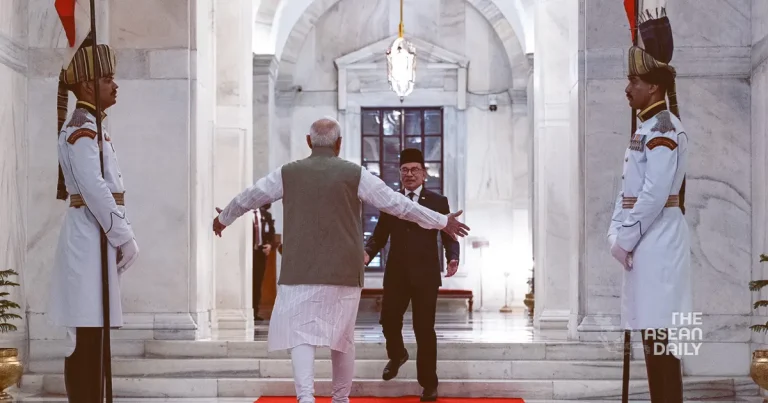20-8-2024 (NEW DELHI) India and Malaysia have announced plans to strengthen their bilateral relationship, with a focus on cutting-edge technologies and defence production. The announcement came following a meeting between Indian Prime Minister Narendra Modi and his Malaysian counterpart, Prime Minister Anwar Ibrahim, in New Delhi on Tuesday.
The two leaders have agreed to elevate their nations’ cooperation to a “Comprehensive Strategic Partnership”, signalling a new chapter in Indo-Malaysian relations. This move comes after a period of strained ties, which began in late 2019 following controversial remarks by then-Malaysian Prime Minister Mahathir Mohamad regarding India’s decision to revoke the special status of Jammu and Kashmir.
Prime Minister Modi highlighted several key areas for enhanced collaboration, including semiconductors, financial technology (fintech), artificial intelligence (AI), and quantum technology. The emphasis on these sectors underscores both countries’ commitment to embracing cutting-edge innovations and staying competitive in the global tech landscape.
Defence production was also earmarked as a crucial area for increased cooperation, suggesting potential joint ventures or technology transfers in the military-industrial complex. This move could have significant implications for regional security and defence capabilities.
The economic dimension of this renewed partnership was evident in Modi’s statement that Malaysia had invested US$5 billion in India over the past year. This substantial influx of capital demonstrates Malaysia’s confidence in India’s economic potential and provides a solid foundation for further financial collaboration.
In a noteworthy development, both leaders confirmed that bilateral trade between India and Malaysia is now being conducted in their respective currencies – the Indian rupee and the Malaysian ringgit. This arrangement aligns with India’s broader strategy to reduce its dependence on the US dollar for international trade, particularly in light of global sanctions affecting countries like Russia.
Prime Minister Anwar Ibrahim expressed enthusiasm about the reinvigorated relationship, emphasising the multitude of areas ripe for exploration and cooperation. His visit to New Delhi marks a clear intent to reset ties and forge a stronger, more comprehensive partnership with India.
The absence of a media question session following the leaders’ statements has left some details of the partnership yet to be clarified. However, the joint commitment to elevating bilateral relations across multiple sectors suggests a significant shift in Indo-Malaysian dynamics.




